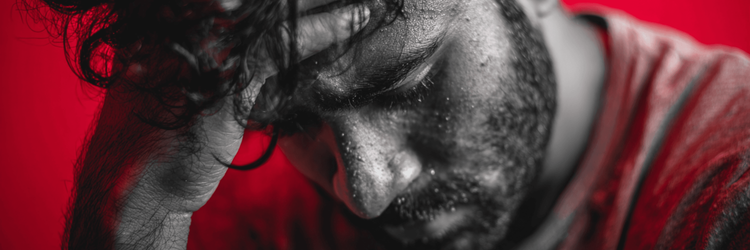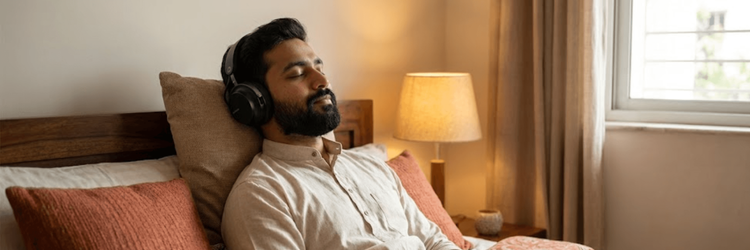Sleep used to be considered a luxury. Today, science shows it’s the foundation of health, focus, and performance. Yet, in a culture of hustling, late-night emails, and endless to-do lists, sleep loss has quietly become one of the biggest threats to productivity.
If you’re a high performer, founder, or simply someone trying to balance stress and clarity, then neglecting sleep may be the costliest mistake you make. Let’s explore why.
Why Sleep is the Foundation of Performance
Sleep is the body’s ultimate recovery mechanism. During deep sleep, your brain consolidates memory, clears out toxins, and resets for sharper decision-making. A night of disrupted rest leaves you foggy, irritable, and less creative.
Studies show that even moderate sleep deprivation can impair reaction times as much as alcohol intoxication (Killgore, 2010). Imagine trying to lead a team, pitch investors, or innovate under those conditions; it’s not just inefficient, it’s dangerous.
For founders and hustlers, the belief that “I’ll sleep when I’m dead” is not only unhealthy but also counterproductive. In reality, better sleep equals better decisions, sharper focus, and sustainable energy.
The Stress - Sleep - Productivity Cycle
The relationship between stress and sleep is a vicious loop.
- High stress leads to stress and anxiety, which triggers restless nights.
- Poor sleep quality then magnifies stress hormones like cortisol, making it even harder to relax.
- The result? Lower productivity, reduced creativity, and constant fatigue.
A 2017 study in the Sleep Health journal found that workplace stress is one of the strongest predictors of sleep disorders like sleep apnea and chronic insomnia. Without effective stress management, performance inevitably suffers.
This is why techniques like mindfulness, relaxation for sleep, and even simple breathwork are gaining traction in the business world. They break the cycle. They lower stress, restore sleep, and boost productivity.
Sleep: The Key Marker for High Performers
In the age of data, tracking your performance has become second nature. But many founders track revenue, workouts, or caffeine intake while ignoring the most crucial marker: sleep.
Elite players already know this. Teams like the NBA and Olympic committees rely on sleep trackers and wearable sleep trackers to measure recovery and readiness. Why shouldn’t entrepreneurs do the same?
By monitoring sleep patterns with a sleep/stress tracker, high performers can uncover blind spots:
- Are you getting enough deep sleep?
- Are late-night work sessions leading to poor REM recovery?
- How much is stress disrupting your rest?
This awareness is the first step in building sustainable productivity. For founders, optimizing sleep isn’t an indulgence; it’s a cognitive performance boost.
Quick Tips to Improve Sleep Quality
You don’t always need drastic changes to improve sleep quality. Sometimes small, consistent actions are enough:
- Establish strong sleep hygiene: Go to bed and wake up at the same time every day. Keep screens away at least an hour before sleep.
- Use relaxation tools: Techniques such as meditation or using relaxation headphones can help create a calm mind for sleep.
- Reduce overthinking at night: Journaling or brain-dumping tasks can help break mental loops.
- Leverage sound therapy: Try music for deep sleep or sound therapy for sleep to guide your brain into restorative states.
- Limit stimulants: Coffee or energy drinks may boost you in the short term, but they can disrupt deep sleep later.
For founders experiencing stress and sleep quality issues, these practices lay the foundation for improved rest. Add subtle tech support, such as a wearable sleep tracker or sleep improvement headphones, and the gains are even greater.
Suggested Blog:
The Future of Wearable Tech: From Fitness Tracking to Brain Boosting.
Why Productivity Matters Most for Founders and Hustlers
For high performers, productivity isn’t just about output—it’s about survival. A founder’s ability to innovate, lead, and inspire depends on mental clarity. But sleep loss erodes these core capacities.
- Lack of sleep weakens emotional control, leading to reactive decision-making.
- Poor rest reduces divergent thinking, limiting creativity.
- Chronic insomnia and sleep apnea increase burnout risk, making it harder to sustain long-term growth.
The truth? Productivity hacks, coffee, or late-night sprints can’t replace the foundation of better sleep. Founders who value their cognitive performance boost through flow state headphones or stress relief techniques are the ones who outlast the burnout curve.
Suggested Blog: Flow state: A life of optimal focus and creative joy
How Technology is Shaping the Future of Sleep
Traditional wearables like smartwatches or sleep headphones can help track rest, but don’t actively change it. That’s where neuro-tech wearables are making breakthroughs.
Sychedelic Headphones are one such innovation.
They combine neuromodulation technology and brain focus technology to do more than just play music, with features like Boost Mode. They actively help the brain shift into desired states, whether it’s winding down for sleep, managing stress, or boosting focus during the day.
Unlike typical normal sleep headphones, Sychedelic is about transformation, not just observation. It’s a tool designed for those who see brain health and wellness tech as the next frontier of performance.
SuggestedBlog: 9 Effects of Lack of Focus: How It's Quietly Damaging Your Career.
FAQs
1. Why is sleep so important for productivity?
Sleep is when the brain consolidates memory, repairs cells, and resets focus. Without it, performance suffers, leading to multitasking inefficiency, poor decision-making, and reduced creativity.
2. What are the most common sleep disorders affecting productivity?
The most common include insomnia, sleep apnea, and chronic stress-related sleep disorders. These disrupt deep rest and reduce energy, leading to multitasking productivity loss during the day.
3. How can stress management improve sleep quality?
Effective stress management lowers cortisol, calms the nervous system, and allows for restorative relaxation for sleep. This reduces overthinking and improves both sleep hygiene and focus.
4. What tools can high performers use to improve sleep?
Sleep headphones, wearable sleep trackers, and stress trackers provide insights. For active solutions, devices like relaxation headphones, sound therapy for sleep, or Sychedelic headphones help achieve a calm mind for sleep.
5. Can technology really improve sleep, not just track it?
Yes. While traditional trackers like sleep headphones only observe patterns, new neuro-tech like Sychedelic Headphones use neurofeedback technology to actively promote stress relief, better sleep, and even music for deep sleep sessions.
Suggested Blog:
Bend Time to Your Will and Get More Done With These Unconventional Ways.
Flow State in the Workplace: Why Top Performers Swear By It.
References
Killgore, W. D. (2010). Effects of sleep deprivation on cognition. Progress in Brain Research.
Medic, G., Wille, M., & Hemels, M. E. H. (2017). Short- and long-term health consequences of sleep disruption. Nature and Science of Sleep.
Irwin, M. R. (2015). Why sleep is important for health: a psychoneuroimmunology perspective. Annual Review of Psychology.
Grandner, M. A. (2017). Sleep, health, and society. Sleep Medicine Clinics.
Walker, M. (2017). Why We Sleep: Unlocking the Power of Sleep and Dreams. Scribner.
National Center for Biotechnology Information (NCBI) – PubMed database on sleep and productivity.
More in Sleep













